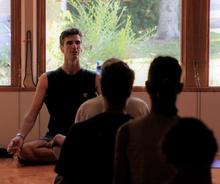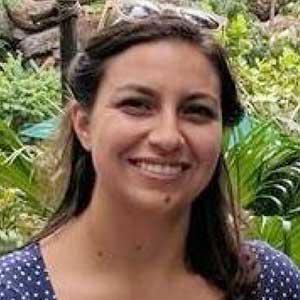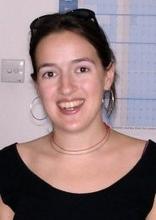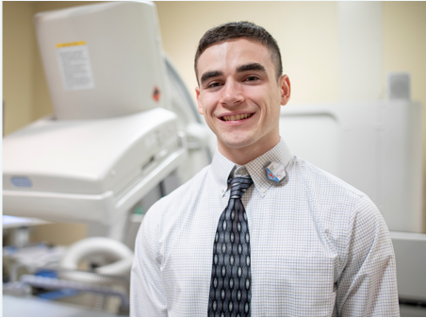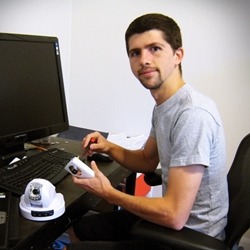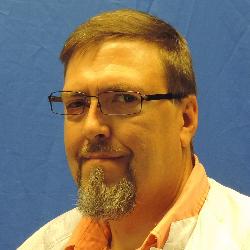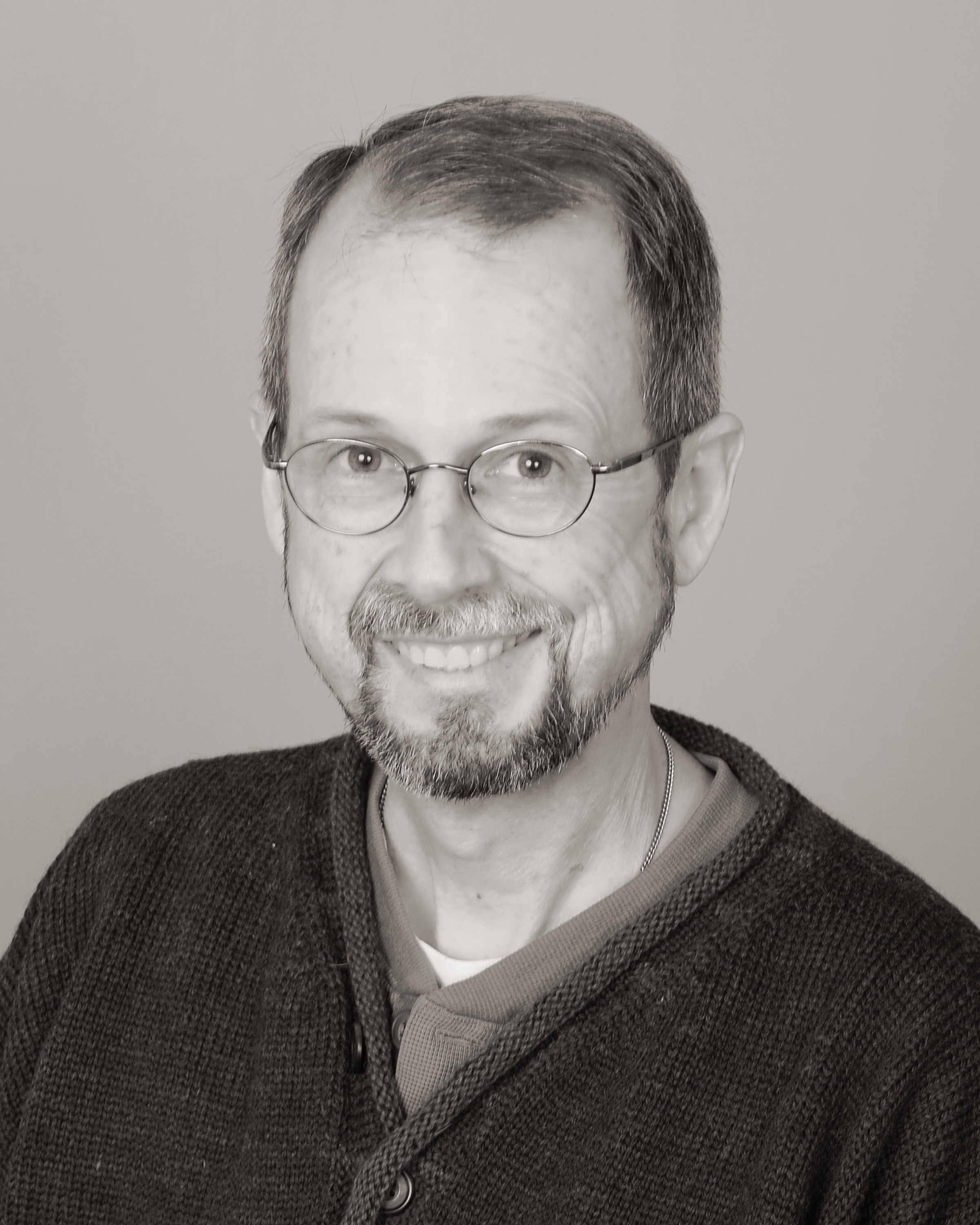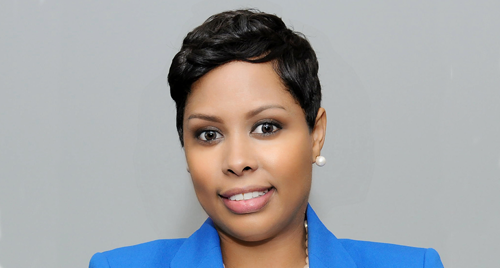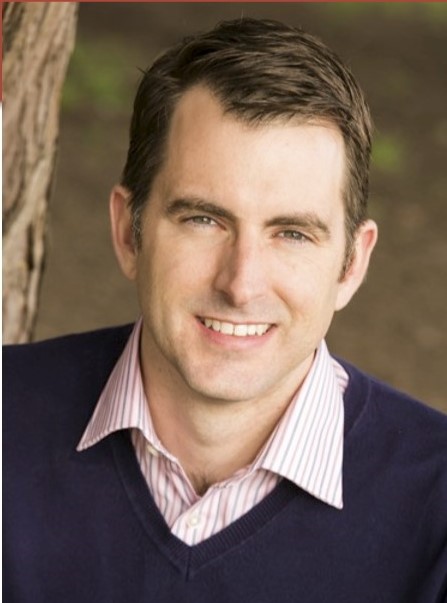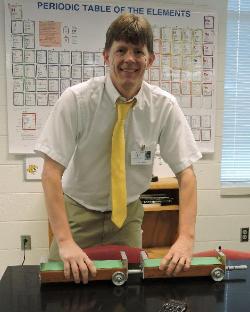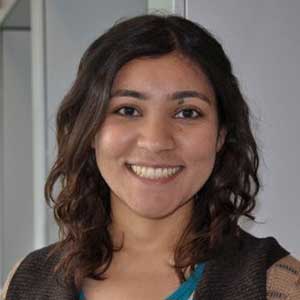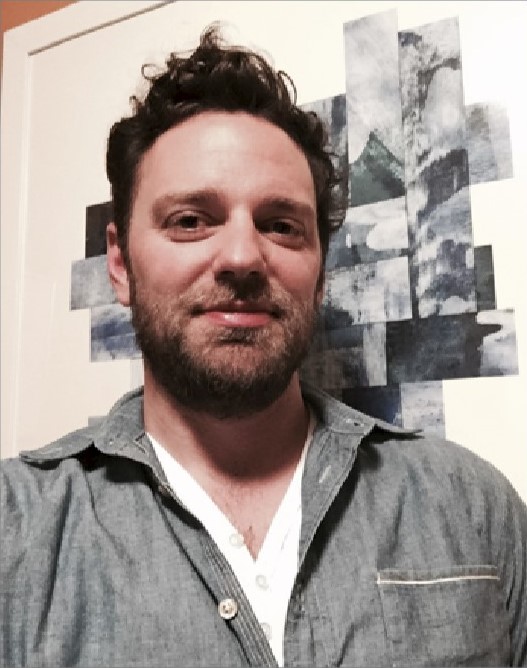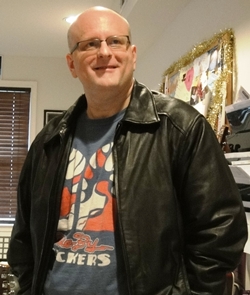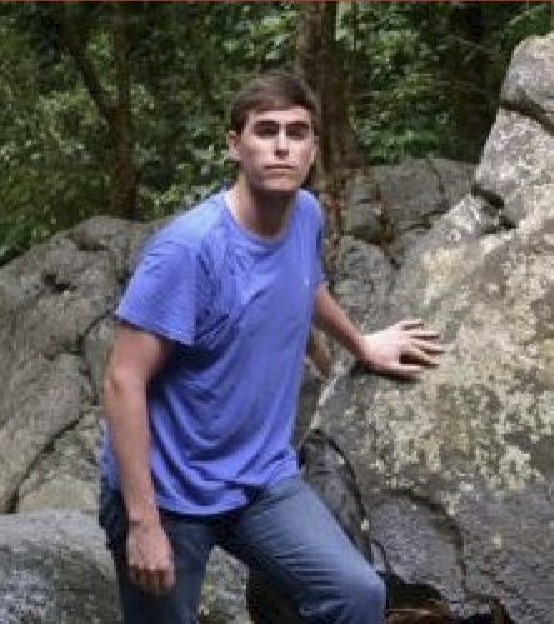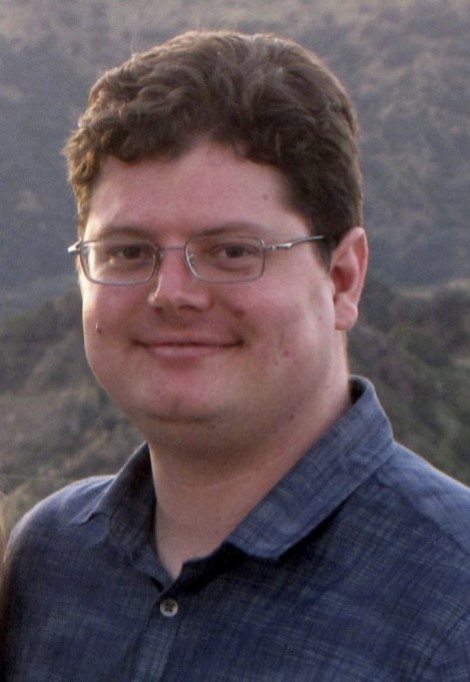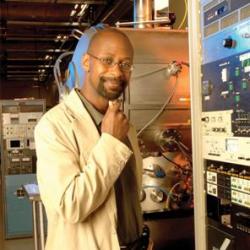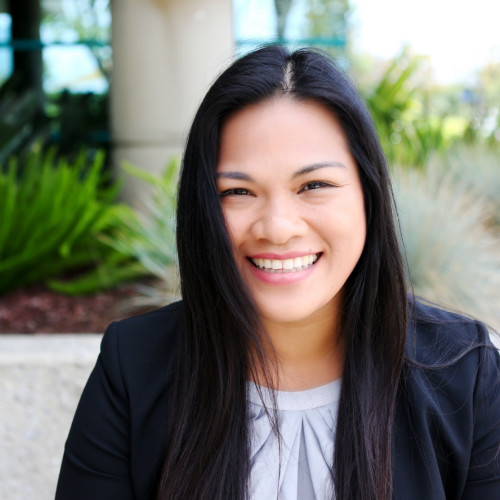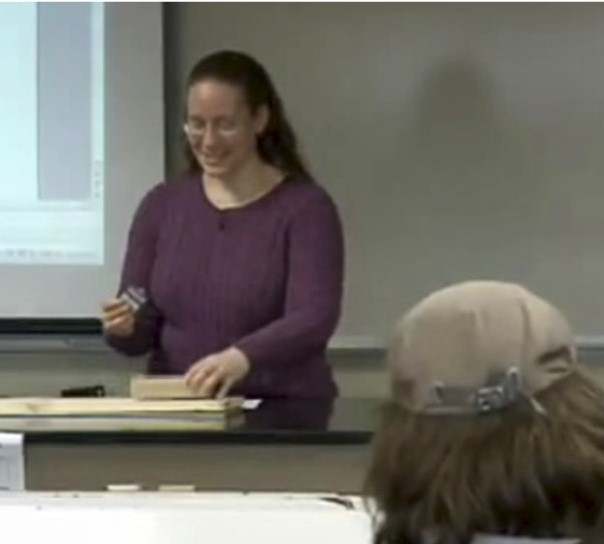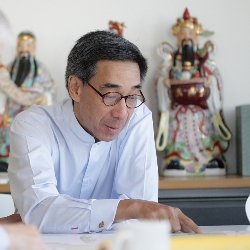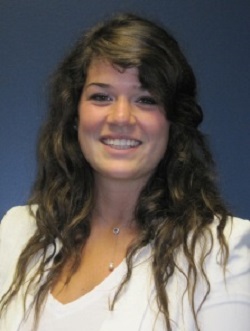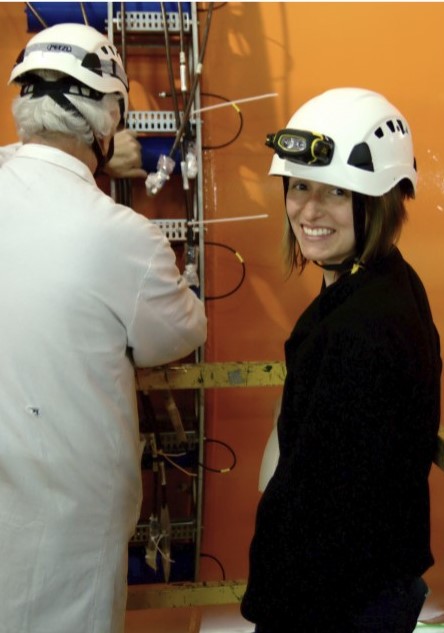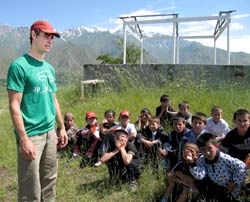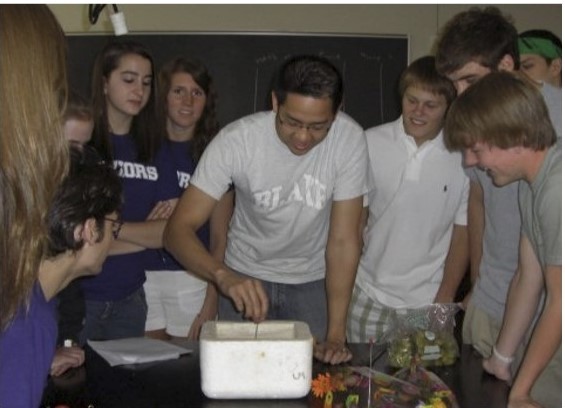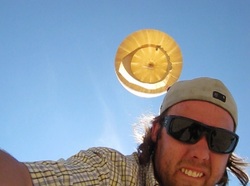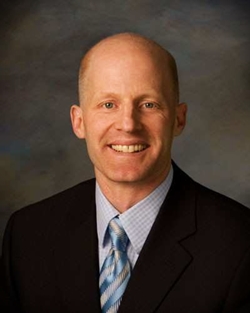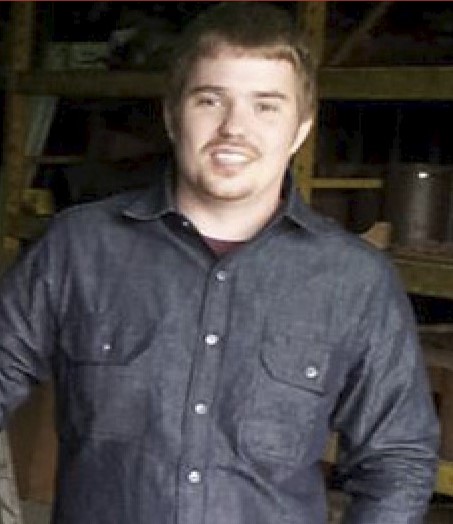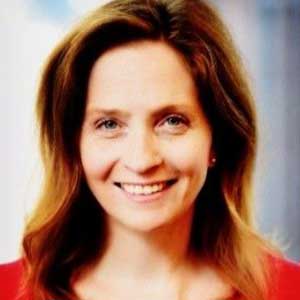Scott Anderson (Physics BS)
Yoga and Meditation Instructor, Blue Mounds, WI
"As a child, I was curious about how the world worked. I took things apart, and sometimes got them back together again.
During his freshman year at the U, Scott was looking for a major that would satisfy his curiosity about the world. He enjoyed his first semester physics class and chose that as his major. As he studied physics, Scott also became interested in the human body and mind, making his first forays into meditation and yoga.
After graduations, Scott says "I did the most logical thing...I launched a career in teaching meditation and yoga." He has since opened several studios.
"Every step of the way I use my physics degree, as navigating self-employment, teaching, and exploring are basically variations on the same theme - problem solving."
Proving that it's never too late to go back to school, Scott began a PhD program when he was 50 years old. He studied the physiology of exercise and meditation. His physics degree prepared him well for graduate school.
"Other than regulating attention, problem-solving is one of the most important skills that a student can learn. Majoring in physics prepared me to solve problems quickly and efficiently."
Jacqueline Benitez (Physics BS)
Distance Learning Educator, California Academy of Sciences
Although Jacque was fascinated by astronomy, she struggled with physics throughout high school and college. But instead of quitting, she decided to try one more physics class in college. This time, it started to click, and Jacque realized the difference a skilled instructor could make.
"It was all about just wanting more knowledge about the word around me and about astronomy," she says.
After graduating, she found an internship position at the California Academy of Science Education Department involving virtual interactions.
As a distance learning education specialist, Jaque spends most of her morning during the school year facilitating science learning over Zoom, teaching a range of subjects. Using her physics training, she has developed interesting engineering techniques and hands-on experiences for her classroom.
"For me, it's all about giving [students who] wouldn't get to come here to the Academy of Sciences a taste of what it's like to be a scientist," she says.
Alison Binkowski (Physics BS)
Policy Analyst at the Government Accountability Office
"[I] was always interested in how the world worked: from why objects fall to what was at the 'edge' of the universe," Alison says.
Alison has a passion for international health care issues that has led to volunteering experiences throughout the world, including at a clinic in Costa Rica, an International non-governmental organization in China, and in Senegal and Mali with the United Nations.
Now, Alison works as a policy analyst for the Government Accountability Office. Her physics training has given her powerful critical thinking skills that she uses to find creative solutions to complex policy problems.
"Many fields - including internation development and health policy - need more people with strong analytic backgrounds," she says. "My analytic training helped me stand out from other candidates to get my current job at the GAO."
Kalven Bonin (Physics BS)
Medical Physicist Assistant at Radiation Physics Consultants, Duluth MN
Kalven chose to study physics in college because he really enjoyed his high school physics class. He knew he was interested in medical physics and radiation therapy, and a physics degree was the next logical step on his path to a career in that field.
"A degree in physics is more than just a piece of paper which states 'you are qualified for this job.' The problem-solving skills that I acquired throughout the process of obtaining my degree have helped me tremendously."
After graduating from the U, Kalven got a job as a medical physcisist assistant at Radiation Physics Consultants, traveling around the Midwest performing quality assurance and safety inspections on X-ray equipment. He credits his undergraduate physics education for providing the resources he needed to suceed.
"My research experience at the U as an undergraduate has helped my career because employers value candidates who are excited to develop new ideas."
In the future, Kalven plans to attend graduate school, earn a PhD, and complete a Medical Physics Certification program so he can move into the radiation therapy side of medical physics.
David X. Cohen (Physics BA)
Writer and Executive Producer of Futurama
David grew up in a house of "natural" science, but although his parents were both biology majors, David found he was more interested in physics and computer science.
"Physics seemed more unchanging to me, more eternally useful, and I felt like I would have more options afterwards by majoring in physics," David says.
Graduating from Harvard, where he was president of Harvard Lampoon, he started his graduate career in computer science. But reaching a dead end in his research project forced him to think about what he wanted to do next: start a new project, or do something else. With a personal interest in humor and a fondness for writing, David started writing sample scripts for TV shows, and eventually started writing for The Simpsons, and later launching Futurama.
David says his physics education made him feel like he "was forced to work very hard and to think hard and logically, and to try to understand the process behind the correct answer...and those things come in handy no matter what you do."
Rhett Creighton (Physics BS)
Co-Founder of Camm Security, Inc.
Rhett's belief that a physics major would provide him a broad base of skills he could apply to any task has paid off with a varied career as an entrepreneur and engineer.
"I wanted to be able to invent things and solve problems without being bounded by current engineering conventions or practices," Rhett says.
As an undergraduate, Rhett used his developing technical know-how to build web business and competition winning robots, as well as to run for student office.
After graduating with a Master's in Nuclear Engineering, Rhett has worked in consulting, and started several companies, including Camm Security Inc., a company that develops video secutiry cameras, and GitHire, a service that matches programmers to companies that need them. Through it all, Rhett has used his physics training to tackle problems he finds interesting.
"I'm always able to tackle and solve a problem using the mathematical, analytical, and software modeling tools I used in physics."
Anthony Day (Physics BS)
Detector Development Scientist at Pacific Northwest Laboratory
Anthony was a curious kid, always wondering how things work. Physics tied everything together.
"In high school I was interested in applied science, computers and electronics," Anthony says. "[My physics instructor] expanded my interest even further. Then he showed me how physics could relate to those interests."
Today, Anthony works in the Radiation Detection & Nuclear Sciences Division at Pacific Northwest National Laboratory. He designs and builds radiation detection devices used in ultra-low background particle detection, and nuclear treaty monitoring.
Anthony advises students to expand the background that physics gives you by being open to a variety of scientific areas and working with scientists in other disciplines.
"Having a varied toolbox of skills helped me to support amazing collaborations...fostering new and exciting career opportunities."
Greg Edlund (Physics BS)
Signal Integrity Engineer, IBM System Z
Greg's high school, Anoka Senior High, had a top-notch math and science curriculum. He got a jump start on subjects like calculus, physics, chemistry and computer programming before heading to the University of Minnesota for college to pursue a degree in physics.
"I was a first-generation college student without much direction from the previous generation [of my family]. Physics was the degree that seemed most likely to satisfy my persistent curiosity."
After graduating, Greg was hired as an electrical engineer at a start-up company, Supercomputer Systems Inc., that built the world's fastest supercomputer. His job was characterizing transistors, simulating and measuring random access memories, and designing analog integrated circuits: pioneering the discipline that would later be called Signal Integrity. He later moved to IBM to continue working as a Signal Integrity Engineer.
"When people ask me what I do for a living, I say: 'We keep the ones ones and the zeroes zeroes."
A signal integrity engineer uses software that simulates electromagnetic field propagation, and test equipment capable of measurements up to 50 GHz. Greg finds his job to be challenging, but very satisfying.
"It's rewarding to know that when someone uses an ATM, there is a good chance they are activating circuits I helped design."
Brett Gilbert (Physics BS)
Lawyer, Assistant Dean at Touro Law Center
A passion for stargazing and a love of science fiction fueled Brett's curiosity and questions about the universe.
"My parents gave me a Newtonian reflector when I was a freshman in high school, and I loved taking it out and observing planets and stars."
After graduating from the University of Toledo in Ohio with a BS in physics, Brett went on to attend an Astronomy PhD program at Boston University. A year later, he realized he might be better suited to a different field of study, philosophy, and left the program.
Brett eventually went to law school, and became a criminal defense attorney in New York City.
"Physics certainly helped prepare me to study philisophy, and particularly law school, [where] clear and consise thought and argument is most appreciated."
Tracee Walker Gilbert (Physics BS)
Owner and Operator of Systems Innovation, LLC
Coming from a family of writers, musicians and teachers, Tracee calls herself an "anomaly." But being surrounded by creativity and early exposure to math and science led to a desire to do physics.
"I always had a passion for solving problems, really tough problems," Tracee admits.
After earning her bachelor's in physics, Tracee did a little bit of everything. She worked for a series of companies, and took a leave of absence to earn her PhD in Industrial and Systems Engineering, before getting a fellowship with the American Association for the Advancement of Science.
Finally, Tracee launched her own company, Systems Innovation, providing management and technology consulting, systems engineering services, and research and development oversight. Starting her own business was a long-time dream, and Tracee feels that her physics degree gave her the skills she needed to be successful.
"[Physics] really gives you the critical thinking and logical reasoning skills that are needed to not only be innovative, but to be a problem solver," she says. "You can go anywhere with a physics degree. If you start off with a business degree, it's harder to go in the other direction. Most things were easy for me to learn having the physics foundation."
Bryant Grigsby (Physics BS)
Vice President of Operations and New Product Introductions at Lumenetix
Bryant first considered a business major, but found it lacking in technical challenges. He switched to engineering, but having taken a physics intro class, he was drawn to physics because it provided a little bit of understanding of everything.
"I expected that getting a job as an engineer or scientist would be easy, but it wasn't. Perhaps having an advanced degree or minoring in Electrical or Mechanical Engineering would have made it easier."
Physics gave Bryant the broad background necessary to lead a multidisciplinary science and engineering team dealing with electronic design, optics, thermal and stress analysis, statistics and software.
"When you lead a large engineering team, you are asked to make decisions that will greatly affect what you are designing, often in an area that you've never worked in. A BS in physics gives you a broad enough understanding in everything such that if you have any decent problem solving skills, you can interpolate and come to a sound decision."
Thomas Hefner (Physics BS)
High School Physics Teacher at Eastern Guilford High School in Gibsonville, NC
Thomas took a year off after high school, and found himself working a "mindless job" with a lot of time for self-reflection. He decided to pursue a degree in physics and secondary education because he wanted a challenging, meaningful career.
"I always had an interest in the sciences and I wanted to have a career that gave something back to society."
Now, Thomas is a high school science teacher. He teaches various levels of physics, but also teaches other science classes. Thomas says that his physics background gave him the fundamental knowledge and logical thinking skills that make him so versatile.
"I have found myself having an easier time teaching other fields and being able to draw links back to the foundation of...science, which is physics."
Zahra Hussaini (Physics BS)
Site Reliability Engineer at Google
At Arizona State, Zahra began as a premed major, because her family pressured her toward a carrer as a physician or lawyer. She soon switched to materials engineering, but still felt that she was not gaining the deeper understanding of the world that she desired. So she switched again, this time to physics.
After graduating, Zahra got a job at NIST, but soon learned that she was not interested in a research career, deciding that she wanted to work for a tech company instead.
"My motivation was just that I didn't want to be...the best programmer in the room. I wanted to be around people that could teach me and where I could learn," she explains.
Zahra eventually found a job as a software engineer at Google, working on satellite imagery. Now, she is a site reliability engineer, focusing on the reliability and maintainability of large systems.
"I think physics is an awesome degree because it teaches you a way of problem solving that is applicable to so many different fields."
Paul Kelley (Physics BS)
Program Manager - Hardware Technologies at Apple
Paul decided to major in physics because he wanted to understand how things worked, and expected that the concepts being taught would provide the explanations.
After graduation, he got a job at 3M measuring the optical properties of components for consumer electronics. Later he worked as an application engineer.
"It seems strange to say but getting my first job wasn't that hard. I was lucky to have some connections with friends at 3M, which has many other physics majors in various divisions. In 2009, I moved to CA to work for Apple, contributing to the iPod, iPhone and Apple Watch projects."
Paul excelled in some physics classes (Quantum Mechanics), others he found tough (Thermodynamics); he wasn't a 'straight A' student.
"Some students are discouraged by getting low grades in physics classes; some think they are not smart enough. I encourage those interested to stick with it, and enjoy the satisfaction of understanding the principles of how things work. Physics has been the foundation for my career in product development."
Mike Long (Physics BS)
Speechwriter and Comedian
Mike's first love was writing, but he didn't see a future career in it, so he set his sights on neuroscience. Things changed after his senior year of high school, when he took his first physics class.
"I thought 'oh my goodness, this is so much better than biology'," Mike says. "It's a different, clarified way to look at the world, and I really enjoyed it."
Mike started doing standup comedy while in graduate schoole and liked it so much that he dropped out of school to pursue comedy full time.
Comedy didn't work out, so Mike returned to writing, eventually pursuing a career in political writing in Washington, DC. Since then, he has worked as a personal speechwriter for a senator, penned five plays, written numerous books and consulted for Saturday Night Live and The Onion.
"Physics teaches you how to think, how to break something down to find its flaws, and reassemble it," Mike says. "It makes you a thoughtful and critical writer...Physics is what made me an unusual and successful writer."
Evan MacAyeal (Physics BS)
Quantitative Analyst
Evan's first physics class in high school, during his junior year, finally gave him a real sense of direction, and it led to majoring in physics at Carleton College. He got involved in gravitational-wave research during his freshman year, and continued this research while taking the usual assortment of classes. But then he changed direction.
"Dating my future fiance, and thinking about a family and what's important for me, I worked hard to complete my BSc in three years. Then I did a one year Masters degree in financial engineering at Columbia."
Using his degrees and alumni connections, Evan quickly found work at a financial company in the Twin Cities.
"Physics teaches you to think. I remember very little of the formulas and theorems, but I use the ability to take something complex and boil it down into a simpler, toy version. Physics also taught me applied math, programming, logic, expository writing, critical thinking, but most importantly, intellectual honesty, perseverance, and to trust empirical evidence more than bravado and swagger."
Mark Madland (Astrophysics BS)
Manufacturing Process Engineer at Medtronic
Mark always liked to figure out how things worked. Enjoying all sciences, an outstanding senior year high school physics experience led him to an astrophysics major in college.
"A technical foundation in physics and ability to comprehend complex problems allowed me to get a job that wasn't asking specifically for a physicist."
As an engineer making medical devices, Mark gets to determine and improve upon how they are made. He also uses data gathering and critical thinking to get at root causes of manufacturing issues and to improve the processes.
"The projects I work on are sometimes like my undergraduate physics laboratory classes. Hypothesize, experiment, report. Almost every day I use skills I learned in school such as how to take, analyze and report data."
Paul Markoff-Johnson (Physics BS)
Engineer at Intevac
Paul's interest in science and math started at an early age, but really took off after his first physics class in high school.
"Suddenly having an ability to explain the things I'm seeing around me with physics, like why a car goes, was really exciting to me," Paul said.
Paul thought he would major in engineering in college, but decided he wanted to study something broader, so he switched to physics. Paul believed physics would broaden his career options, and would help him suceed in a variety of fields.
"You get that ability to walk into strange situations, unfamiliar situations, and think from what I call basic principles; to use a basic understanding of how the world works in order to solve the problem."
Now, Paul uses thin coatings of materials for a variety of purposes, such as making an MP3 player hold more songs, or creating less expensive solar cells.
"If I'm successful, if [the solar power] industry is successful, we will have changed the world for the better."
December Martin (Physics BS)
Senior Project Manager in Biomedical Technolgy at Stryker in Kalamazoo, MI
December calls her start in physics a "happy accident"; she was accepted to a rigorous, all-scholarship high school in the Philippines, studying science and math every day.
She found a job at a biotech startup straight out of college. She traveled to several countries to teach science and English, and to support humanitarian work.
"The biggest driver I have every day is being able to make [a meaningful] connection out in the world to the work that I do," she says.
Now, December is a project manager working on a device to treat brain aneurysms and strokes. She loves being able to help people, and is invigorated by the scientific community she works in.
"[Scientists and engineers] never say 'when am I ever going to use this'...This mentality is one I love and know I share with people in science."
Mary Lee McJimsey (Physics BS)
High School Physics Teacher at North Central High School in Spokane, WA
Attend Mary Lee McJimsey's high school physics class, and you may be surprised! Rather than delivering a long lecture at the board, she would be leading students in a hands-on exploration of how physics principles appear in everyday situations.
In addition to teaching, Mary Lee works with a physics education researchers who collects data on how students learn in her classes.
"It's important for teachers to be well-versed in physics education research," she says. "My understanding of this research informs the methods I use in my classroom."
Chien Chung (Didi) Pei (Physics BA)
Architect and Co-Founder of Pei Partnership Architects
As a physics major at Harvard, Didi also took some art and architectural history courses. With his background in physics, and an interest in art and design, he decided to pursue a Masters in architecture.
Didi's approach to architectural design merges science and art to produce award-winning structures. Studying physics has given Didi a sense of practicality and logic that you don't usually learn when studying the arts.
"A lot of architects would like you to think that architecture is about being an artist, and you can do anything. But you have a responsibility as an architect...so having a logical thought process is useful," says Didi.
Didi has contributed to designs all over the world, including the Grand Louvre in Paris.
"I had acquired really rigorous training in the scientific method. There aren't many architects who had that, and it's been very useful to me throughout my career."
Maggie Seeds (Physics BS)
Associate Consultant at Clarkston Consulting
Maggie was always a stargazer, and that interest in astronomy drew her to study physics in college. She had researched young solar analogs, distant stars similar to our own sun as it formed, long ago. Maggie also enjoyed the satisfaction of finding an answer to complicated problems.
"My physics background helped train my brain to think analytically, and persevere through tough situations."
Today, Maggie is an associate consultant for a management and technology consulting firm. She plays many different roles depending on clients' needs, ranging from technical to strategic plans regarding how raw materials make their way into a finished marketable product.
"I wanted a career that allowed me to use the critical thinking skills gained from my physics studies to solve complex business problems."
Kelly Stifter (Physics BS)
Physics Graduate Student at Stanford University
Kelly came to the University of Minnesota intending to major in astrophysics. She was always captivated by stars and the universe. But partway through her studies, she switched to experimental physics, and, among other things, helped build hardware for detectors at the European CERN accelerator.
"I found that the part I enjoyed most was tinkering with all of the hardware. I like to build things, especially when these things are used to discover how the universe works at the most fundamental level."
Serving as a teaching assistant, Kelly also found that she enjoys teaching and sharing physics with others, and decided to continue as a graduate student, which may lead to an academic career.
"Physics is my passion. It is incredible that I will be paid to live this dream every day. I look forward to working with different groups at Stanford while I find my future plan."
Nathan Swift (Physics BS)
Chief Operating Officer of Hedgemon
Nathan liked physics in high school because he was "really bad at memorization, but good at deriving."
After graduating, Nathan went back to school to get his Master of Science in Physics Entrepreneurship, a program offered at Case Western Reserve University. As part of his degree, he co-founded the company Hedgemon with his friends, using biomimicry to design protection technologies, like football helmets.
Nathan feels that "physics training teaches far more than just the physics and math, because it enhances how I approach problems and concepts: breaking them down into simpler parts, starting with what I know, and methodically working my way to a solution."
Nathan uses these problem-solving skills as Chief Operations Officer of Hedgemon, a job that includes operational tasks like accounting and fundraising, as well as technical and research work.
Middy Tilghman (Physics BA)
Co-Founder and Director of Tajikistan Youth Camp Lageri Amerikoii
Middy was an avid kayaker and outdoors fan growing up. And while he liked most of his classes, math and science were always his favorites.
After graduating from Wesleyan University with a Bachelor of Arts in Physics, Middy moved to France to teach English and pursue competitive whitewater kayaking.
While kayaking the rivers of Tajikistan, he joined a non-profit organization working to improve the country's water sanitation. He also helped found Lageri Amerikoii - Tajik for Camp America - a summer camp for Tajik children. At Lageri Amerikoii, children get to rock climb, play sports, and participate in a variety of activities they might otherwise never have experienced.
Middy credits his physics education for teaching him how to work hard and pursue his diverse interests.
"For me," Middy says, "physics was not the specific set of skills I needed for my career, but it gave me a great set of foundational tools which I can use to learn other necessary skills."
Jeff Trinh-Sy
High School Teacher at the Blake School in Minneapolis
After several on-the-spot job offers, before he even earned his degree, it was clear to Jeff that the mindset and perspective that physics offers is incredibly valued by various fields of the workforce. After two summers working with students, though, he found that teaching is a path that brought him fulfillment and meaning.
"Every day I get to play with, study, and teach physics. More importantly, though, I get to give people a glimpse of how I see the world and beyond. That opportunity to see those sparks of light is absolutely invaluable."
As an educator, Jeff has the freedom to develop curriculum, and even entire classes, that resonate with him. He sees powerful connections between physics and other fields of human endeavor.
"It's all about taking the never ending life lessons that I pick up everyday and teaching them through the language of physics, math, and science in general. It doesn't take long for students to see how limitless they are."
Aaron Weiss (Physics BA)
Prototype Engineer and Founder of Bitsmashed, Inc.
You might call Aaron Weiss an adventurer. After earning his BA in physics, he went through three jobs before he saw his true potential:
"It was a scrappy group of engineers cooking circuit boards in a tiny room with no ventilation."
Since then, Aaron has designed pieces of embedded hardware, written code and fabricated circuit boards at Sparkfun, Inc., a company that builds hardware components for use in electronics projects. He even started his own company, called Bitsmashed.
At Bitsmashed, Aaron has built everything from geiger counters to a GPS backpack strapped to a live hawk! He says that his physics training has helped him blaze his own career path:
"When I grasped how complex our world is, my curiosity shot through the rough. I knew I could learn [what I needed] as I went along."
Brent Wouters (Physics BS)
Executive Vice President at IO Data Centers
Growing up in Iowa, Brent felt that math and science always came easily to him. Once in college, he chose to major in physics because of its versatility.
"[Physics] would provide a technical foundation that would allow me to pursue whatever I wanted," he says.
Aftger graduating, Brent got his MS in Aerospace Engineering and embarked on quite a journey, working as an aircraft engineer at Lockheed Martin, earning an MBA, and eventually becoming CFO and CEO of Cirrus Aircraft, a company that builds planes.
Today, as Executive Vice President of IO Data Centers, a corporation that manages computer data centers for companies all around the world, Brent attributes his sucess in so many different areas to his physics training:
"You've got to recognize that your career will take you in a host of directions," he says. "Physics [will open] a tremendous number of doors."
Ian Young (Physics BS)
Engineering Physicist at Fermi National Accelerator Laboratory
Ian became interested in physics while attending Minneapolis Community and Technical college. He transferred to the University of Minnesota, and worked with particle physicists on building a new accelerator, and then as an intern at a small industrial manufacturing company. Having completed his degree, he joined Fermi Lab.
"I work with physicists, engineers and technicians to design, create and implement automation for various systems, such as cryogenic controls and oxygen safety. I also work on many other aspects of the diverse array of experiments conducted here."
Ian wasn't sure whether he wanted to stop at the bachelor's degree, or continue with his studies. He expected his physics major studies to be challenging as well as rewarding, but he was nervous about his job prospects if he didn't continue beyond the BS.
"But I found out that there are plenty of opportunities for employment with a physics degree. It seems that majoring in physics is a very focused degree, but in fact it allows you to be extremely versatile in your career choice. My studies gave me the mathematical, critical thinking and never-give-up attitude to tackle every task."
Amy Ziegler (Physics BS)
Intellectual Property Attorney
An excellent high school physics teacher led to Amy's interest in physics. She won several prizes at science fairs, and these experiences played a substantial role in her decision to study physics in college.
After earning her Bachelor's degree, she began working at Argonne National Lab. She learned that research topics are often determined by available funding, not just personal interests. Wanting a career with more autonomy and variety, she decided to attend law school, and is now an intellectual property lawyer.
"I like what I do, I like the legal work, but I also like applying technolgy to try and make our processes better and more efficient," she says.
Amy found the discipline and logical thinking skills learned through her physics background to be especially helpful when researching highly specialized inventions for patent applications.
